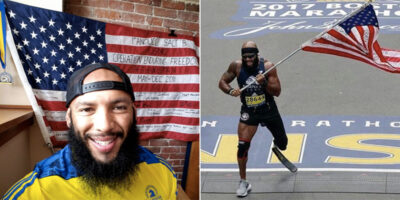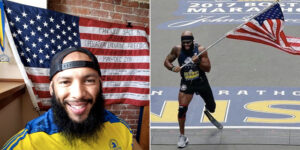New Campaign Encourages Athletes To Open Up About Mental Illness
Over the years, men have adopted the idea that their identity is somehow attached to how much they can deal with.
Concepts like being the primary bread-winner, not showing pain, and never succumbing to help, are all unspoken truths men have unnecessarily held to over the years.
Recently we’ve seen pillars in the hip-hop community battle this topic. Late last year rapper Kid Cudi admitted on his Facebook page that he was dealing with depression and having suicidal thoughts.
A month later his close friend, Kanye West was admitted to Los Angeles’s Ronald Reagan UCLA Medical Center and placed under observation after suffering from exhaustion and sleep deprivation.
Later reports of stress and mental fatigue were attributed to his admittance.
It’s something we all go through.
Half of men, 49 percent, feel more depressed than they admit to the people in their life, according to the TODAY-commissioned report “State of Men 2016,” a Berland Strategy online survey of 1,001 adult males.
And almost half, 45 percent, believe mental health issues can be solved on their own.
The Rugby Player’s Associating is looking to end this stigma with the new British campaign called #LiftTheWeights.
The campaign features videos of former and current rugby players — who arguably have the most physically imposing profession — talking about their experiences with depression, anxiety, suicidal feelings, and loneliness.
For example, New Zealand’s Jono Kitto speaks on his personal journey with depression and how up until his thoughts of suicide it was something he tried to fight himself.
After reaching out to his parents he admitted: “a little bit of a weight was lifted off my shoulders… now I could walk through it with other people. It wasn’t just my own battle, it was a battle others could support me with and walk through it with me.”
Another video features British rugby player, James Haskell describing how it felt to deal with debilitating feelings of anxiety and low self-esteem since the age of 19.
Like, Kitto, it never got any better until he sought out help from his sports psychologist. “She helped me believe in myself,” he says.
The campaign is well worth the watch. It’s not only good for athletes but anyone suffering from similar issues.
Watch the videos here and learn more about the campaign here.












You must be logged in to post a comment Login